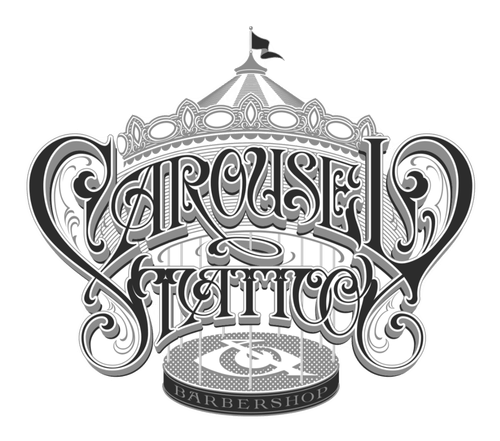Exploring Mental Health Care in Ontario
In the diverse landscape of mental health care, Ontario stands out with its array of residential mental health facilities. These facilities cater to the varying needs of individuals struggling with mental health challenges, offering tailored environments for recovery and growth. As the demand for specialized care increases, the importance of residential options cannot be overstated.
The integration of traditional and holistic therapies in residential mental health facilities in Ontario provides a comprehensive approach to treatment, aiming to address both acute symptoms and long-term recovery.
For families and individuals navigating the mental health system, understanding the options available can be overwhelming. Ontario’s facilities offer diverse treatment modalities, creating pathways to recovery that are as unique as the individuals they serve.
Importance of Residential Care
Residential mental health facilities in Ontario play a crucial role in offering intensive, round-the-clock care for individuals who require more than outpatient therapy. These safe and structured environments are designed to provide comprehensive support, addressing the multifaceted aspects of mental health struggles.
These facilities are integral in offering a continuum of care that many patients need to stabilize and maintain their mental health. They allow residents to step away from external stressors, focusing entirely on their recovery journey. This interruption provides the space for healing, learning new coping strategies, and implementing therapies effectively.
The personalized treatment plans available in these settings contribute significantly to long-term recovery success. By fostering an environment of consistency and routine, individuals are encouraged to engage fully with therapeutic interventions and community support.
Holistic Approaches in Ontario
Holistic care is a cornerstone of many residential mental health facilities in Ontario. Facilities like Twelve Mile Recovery in Niagara have embraced this approach, integrating diverse therapies that attend to physical, emotional, mental, and spiritual well-being. From mindfulness practices to martial arts, these therapies aim to fortify each aspect of an individual’s health, promoting resilience and self-awareness.
The combination of evidence-based therapies, such as cognitive-behavioral therapy, with alternative approaches like yoga and mindfulness, offers a well-rounded healing strategy. By addressing the mind-body connection, residents often experience profound improvements in their overall well-being.
These integrative strategies emphasize the whole person rather than just symptoms, empowering individuals to reclaim control over their lives and develop tools for enduring mental health maintenance.
Through this comprehensive care model, patients in Ontario’s residential facilities are given the opportunity to explore varied therapeutic modalities, helping them find what resonates most with their personal healing journey.
Navigating the Options
Choosing the right facility among the residential mental health facilities in Ontario requires careful consideration of individual needs and treatment goals. Each facility offers unique strengths, specialties, and therapeutic environments. It’s essential for prospective residents and their families to research thoroughly to find the best fit.
Factors such as location, treatment philosophy, available therapies, and the qualification of staff should all play a role in the decision-making process. Facilities like Twelve Mile Recovery highlight the importance of a supportive, knowledgeable staff composed of individuals with lived experience, fostering an empathetic and understanding environment.
Additionally, understanding the financial aspects, including insurance coverage and payment options, is crucial for planning and ensuring that the necessary support is accessible and sustainable.
Families often find value in visiting potential facilities, speaking with treatment teams, and connecting with alumni to gain insight into the care experience. This due diligence can lead to more informed choices, aligning treatment options with personal recovery journeys.
Community and Peer Support
The power of community cannot be underestimated in the context of residential mental health facilities in Ontario. Many centers, including Twelve Mile Recovery, prioritize the development of a community among residents. This support network not only aids in immediate recovery but also fosters lasting connections that can extend beyond treatment.
Peer support is an invaluable component, offering residents real-world insights and encouragement from individuals who have walked similar paths. Sharing experiences and challenges in a safe, understanding space can be an empowering aspect of recovery, helping to dispel isolation and hopelessness.
The Role of Professional Expertise
Residential mental health facilities Ontario are staffed with dedicated professionals who bring a wealth of knowledge and experience to the table. This expertise is crucial in developing and implementing individualized treatment plans that cater to the specific needs and histories of each resident.
Professionals at facilities like Twelve Mile Recovery often include psychologists, therapists, social workers, and medical staff, all working collaboratively to ensure comprehensive care. Their insights and training equip them to handle diverse mental health issues, providing a multi-dimensional approach to treatment.
- Psychologists and psychiatrists for diagnostic clarity and therapeutic interventions.
- Social workers to aid in practical support and resource management.
- Medical staff for continuous health monitoring and medication adjustment.
Anecdotal Evidence and Success Stories
Stories of transformation and resilience are abundant in the landscape of residential mental health facilities in Ontario. Testimonials from clients at Twelve Mile Recovery emphasize the profound impact of personalized, empathetic care. Individuals often highlight the strength they found in community and the innovative therapies that guided them through difficult times.
The anecdotal experiences shared by former residents not only inspire hope but also illustrate the diverse paths to healing. These stories serve as beacons for others embarking on similar journeys, offering a glimpse of the potential for recovery and renewed life.
Hearing directly from those who have experienced the process can demystify recovery and provide much-needed encouragement, suggesting that healing and growth are attainable goals.
Future Directions in Mental Health Care
The evolving landscape of residential mental health facilities in Ontario suggests exciting prospects for the future. As new therapies and technologies emerge, facilities are well-positioned to incorporate these advancements, enhancing care delivery and efficacy. The continuous integration of research-based methods ensures that residents receive the most up-to-date and effective treatments available.
There is growing recognition of the need for more inclusive and culturally sensitive approaches, paving the way for facilities that reflect the diversity of the population they serve. This commitment to inclusivity ensures that every individual feels seen, heard, and supported in a manner that respects their unique cultural and personal background.
As mental health care continues to advance, residential facilities in Ontario remain at the forefront of innovation, constantly striving to provide the best possible outcomes for their residents.
What makes residential mental health facilities essential in Ontario?
Residential mental health facilities in Ontario are vital because they offer intensive, 24-hour care for individuals who need more support than outpatient services can provide. These environments are structured and safe, allowing residents to focus entirely on their recovery without the stressors of everyday life. For example, consider someone facing debilitating depression or anxiety who finds it difficult to maintain daily routines. In a residential setting, they can receive personalized care and therapies that address their unique needs, promoting stability and healing. This comprehensive care model supports long-term recovery by integrating various therapeutic interventions, offering a holistic approach to mental health care. What are your experiences or thoughts on the significance of residential care in mental health recovery?
How do holistic approaches enhance recovery in Ontario facilities?
Holistic approaches are a cornerstone of many mental health facilities in Ontario, including Twelve Mile Recovery. These methods integrate mind, body, and spirit, providing a comprehensive treatment strategy. For instance, blending cognitive-behavioral therapy with mindfulness and martial arts helps cultivate resilience and emotional regulation. Residents can explore what resonates with their healing process, whether it’s yoga for stress reduction or creative arts for emotional expression. Imagine a resident finding peace in mindfulness practices, leading to a significant breakthrough in managing stress. Holistic therapies empower individuals, encouraging self-awareness and a balanced lifestyle. Have you found holistic methods beneficial in your mental health journey, or are there approaches you’re curious about trying?
What should one consider when choosing a residential facility in Ontario?
Choosing the right residential facility in Ontario involves several considerations. First, it’s crucial to match the facility’s treatment philosophy with the individual’s needs. For example, if someone values holistic care, a center like Twelve Mile Recovery, which integrates mindfulness and martial arts, might be ideal. Investigate the qualifications of the staff, ensuring they are experienced and empathetic. Financial aspects, such as insurance coverage, should also be assessed to avoid unexpected costs. Visiting facilities, talking to alumni, and understanding available therapies can provide insights into the care experience. This due diligence helps ensure the chosen path aligns with personal recovery goals. What factors are most important to you when considering a residential treatment option?
How does the community and peer support contribute to recovery?
Community and peer support are crucial in the recovery process within residential facilities like those in Ontario. At Twelve Mile Recovery, creating a supportive community allows residents to share experiences, fostering a sense of belonging and understanding. Peer support provides invaluable real-world insights from individuals who have faced similar challenges, offering hope and reducing feelings of isolation. Imagine the reassurance and strength gained from connecting with someone who has navigated the recovery path successfully. These relationships often extend beyond treatment, forming lasting support networks. Have you experienced the impact of peer support in your life, or do you find the idea of community in recovery spaces appealing?
What role does professional expertise play in residential care?
Professional expertise is fundamental in delivering effective residential care. Facilities in Ontario, such as Twelve Mile Recovery, employ teams of psychologists, therapists, and medical staff who collaborate to create personalized treatment plans. This expertise ensures that each resident’s mental health needs are thoroughly addressed. Consider a resident grappling with a complex mental health issue; a knowledgeable team can provide diagnostic clarity and therapeutic interventions tailored to their circumstances. The blend of clinical and experiential knowledge offered by professionals supports a multifaceted treatment approach, enhancing the potential for successful outcomes. How do you feel about the role of professional guidance in mental health recovery?
What are some success stories from residential facilities in Ontario?
Success stories from residential facilities in Ontario often highlight significant transformations. Testimonials from places like Twelve Mile Recovery reveal personal growth and recovery breakthroughs. For instance, clients frequently express gratitude for the empathetic care and innovative therapies that have led them through challenging times. Imagine someone arriving with little hope, only to find community support and therapies like mindfulness drastically improving their mental health. These stories illustrate diverse paths to healing and serve as beacons of hope for others starting their journeys. Have you come across any inspiring recovery stories, or is there one that resonates with you personally?
What are the future directions for residential mental health care in Ontario?
The future of residential mental health care in Ontario is promising, with an emphasis on innovation and inclusivity. Facilities are incorporating new therapies and technologies to enhance treatment efficacy. For example, ongoing research into culturally sensitive approaches ensures that care reflects the diversity of the population. Imagine a future where virtual reality therapy becomes part of treatment plans, offering immersive experiences for managing anxiety. This forward-thinking approach positions facilities like Twelve Mile Recovery at the forefront of mental health care, continually evolving to meet residents’ needs. How do you see technology influencing mental health care in the future, or are there advancements you’re particularly excited about?
Resources
- Centre for Addiction and Mental Health (CAMH) – CAMH is Canada’s largest mental health teaching hospital and one of the world’s leading research centers in its field.
- Mental Health Commission of Canada – The MHCC is a catalyst for improving the mental health system and changing the attitudes and behaviors of Canadians around mental health issues.
- Psychology Foundation of Canada – The Psychology Foundation of Canada promotes the application of psychological knowledge and evidence-based practices to promote healthy development and prevent mental health problems in children and youth.
- Canadian Mental Health Association – The CMHA provides advocacy, programs, and resources to help prevent mental health problems and support the recovery of people experiencing mental health issues.
- Ontario Ministry of Health – Mental Health Services – The official government page providing information on mental health services available in Ontario.












